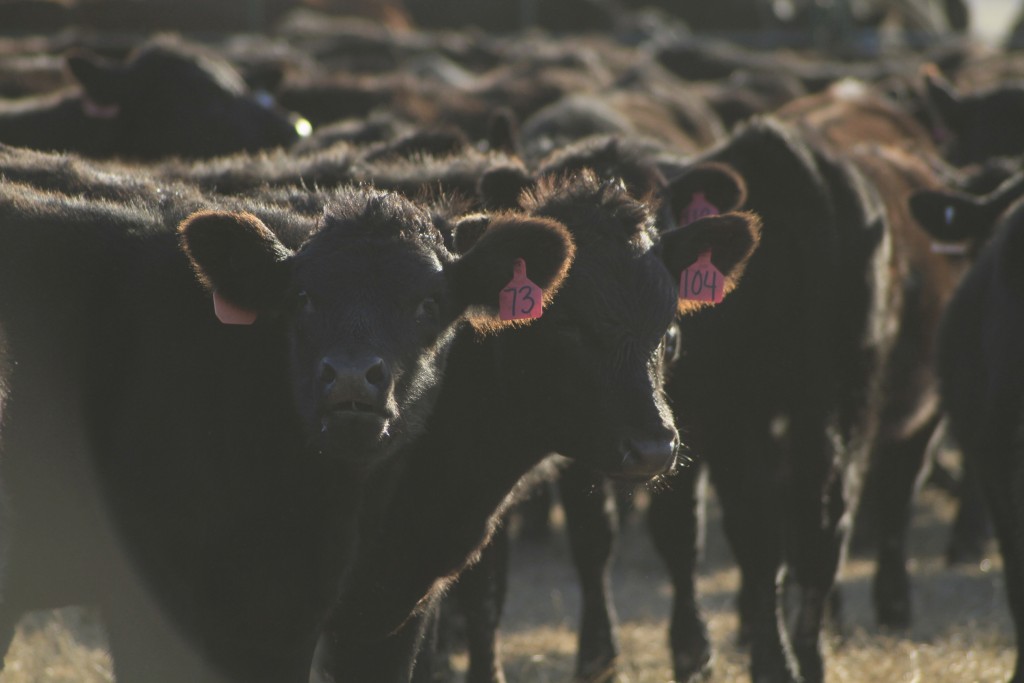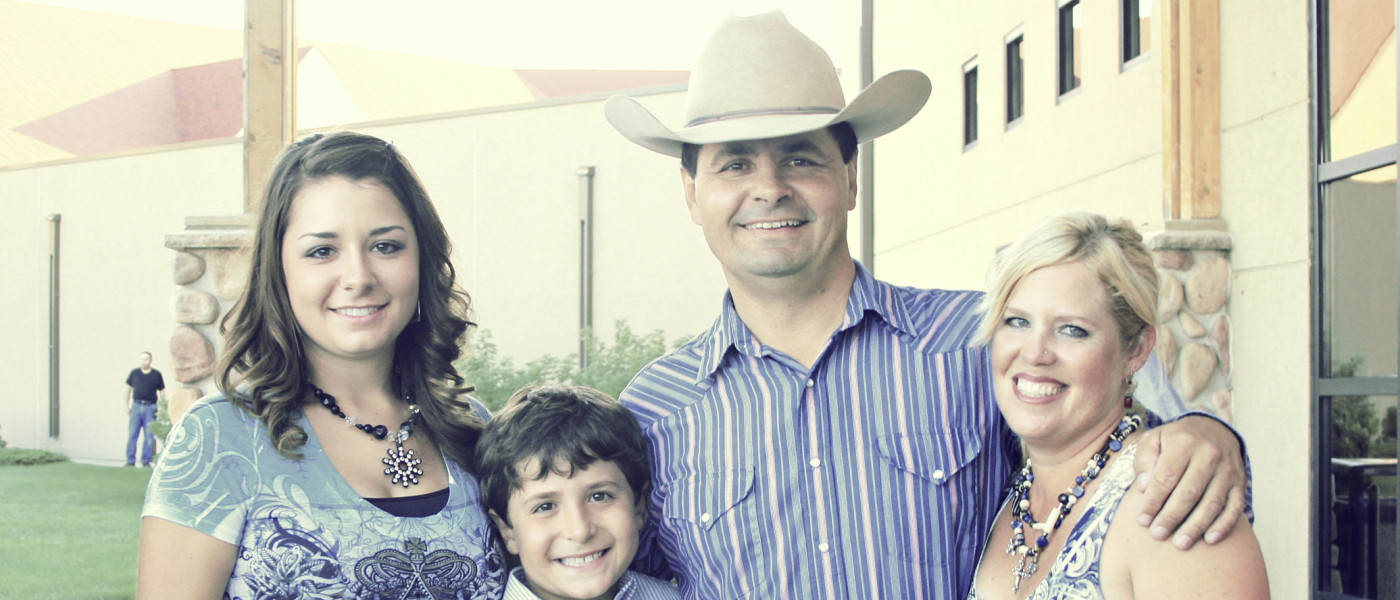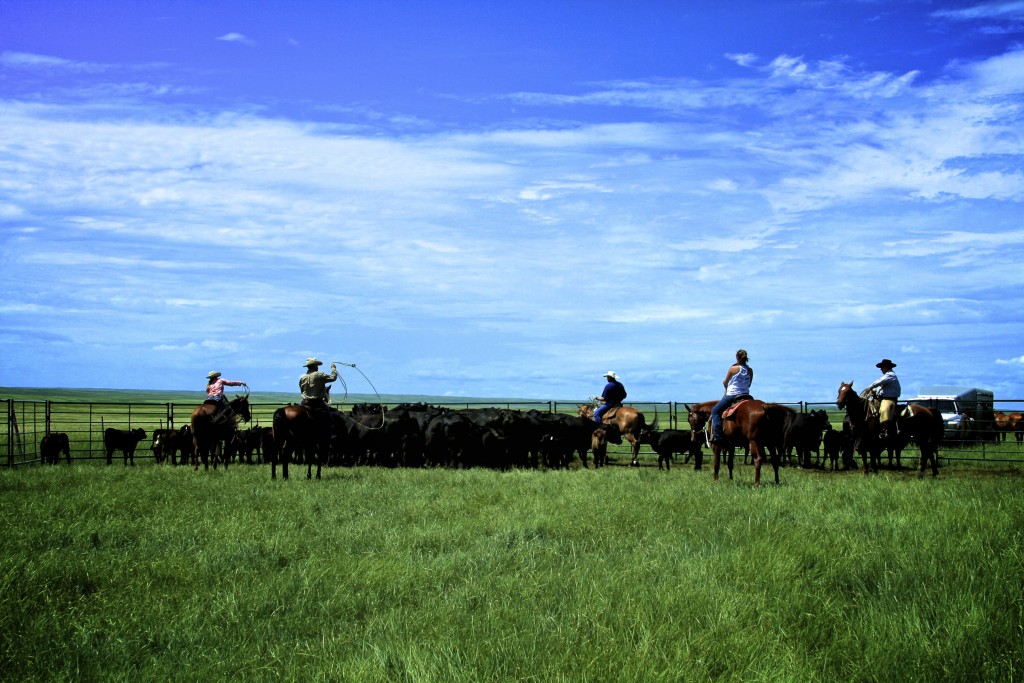The Ducheneaux Ranch is a third generation cow-calf operation in Eagle Butte, South Dakota, on the Cheyenne River Sioux Reservation. Zach Ducheneaux and his family raise Black Angus-cross bred cattle, and their quarter horses have always had an important place in the operation.
During college, Zach Ducheneaux and his brother, Guthrie, shared the duties of taking care of the family ranch, taking time away from college as needed to keep it running. During this time of off-and-on schooling, Zach began to see the great value of his upbringing, which was so markedly different than some of his city-raised classmates.
When Zach later found out that he was going to be a father, he decided to move back to the ranch and establish his family there. “I couldn’t think of a better place or way of life to bring children up in, so I chose to move home and get my own start,” he says. On the family ranch, Zach has helped to establish a herd of 300 Black Angus-crossbred cows and 20 Quarter Horse mares, and has found continued success in the family tradition of horse breeding.

Zach describes the early years of the ranch’s horse program as “the essence of horsepower,” because his grandfather’s herd had big feet, strong shoulders suited for a harness, and not much of an inclination to chase cows. That was a time when horses were still the primary source of horsepower on the ranch and so this was necessary. Zach’s father, with the onset of more mechanical power on the ranch, was able to begin selecting horses for their family-safe disposition and athletic ability.
As the third-generation, Zach is bringing another new approach to the horse breeding operation, putting more emphasis on the horses’ perspective than the humans’. He expertly breeds horses for disposition above all else, and then performance, trainability, usefulness, and finally, for appearance. Although the methods of horse breeding have changed since the founding of the Ducheneaux Ranch, Zach says, “One thing that will never change is the emphasis on the benefits of having a good and gentle horse around to do the job; and doing that job in a way that is thoughtful and makes sense to the critters involved.”
Zach enjoys working with the horses and cows with and amongst family above all else, but explains that he takes a relatively hands-off approach to raising their animals. “We expect our cows to go out and raise a calf without a lot of care. Once the calves are born and have had their first round of vaccinations [in June], they are on their own until fall shots.” In addition to their breeding program, the ranch recently began offering all natural, antibiotic- and hormone-free grass fed beef for sale.
The Ducheneaux’s base of operations consists of about 600 acres, but they also rent another 12,000 acres from the Cheyenne River Sioux Tribe and private individuals. In addition to raising cattle and horses on the land, the Ducheneauxs have about 250 acres of farm ground which has in the past produced oats, wheat and Sudan grass and is currently in alfalfa. Zach’s brother Bud and father Wayne also typically cut around 1,000 acres of native grass hay each year, and assist with virtually every aspect of the operation, allowing Zach the freedom to pursue other endeavors.
In addition to running his own successful ranch, Zach works to ensure fellow Native American farmers and ranchers find the resources they needed to thrive as agricultural producers. In the mid-1990s, Zach became involved with the Intertribal Agriculture Council (IAC), which was founded in 1987 to pursue and promote the conservation, development and use of our agricultural resources for the betterment of Native American people. Zach began at the IAC as a farm advocate and last year he began working as the IAC’s program manager for the Tribal Technical Assistance Network. With the help of the United States Department of Agriculture, the Network is focused on improving access to the USDA’s programs and services for Native American farmers and ranchers nationwide.
“Sustainability, a time-honored way of life for our people, has become a buzzword in the agriculture sector.”
Zach remarks that Native people have a special tie to agriculture, as they were the first farmers on the continent. Despite years of government policies that forced them off their land and away from their sustainable practices, Zach is hopeful that Native Americans are in a position to regain their way of life. “Sustainability, a time-honored way of life for our people, has become a buzzword in the agriculture sector,” he says. He believes this trend, along with improved access to farming resources, will bolster their efforts to reconnect youth with the land and a return to prosperity.
Zach, himself, is making great strides in reconnecting youth with the land. He and his girlfriend Jenn Zeller and his daughter Kelsey run an internship program at the ranch, exposing participants to every aspect of the horse business, from starting colts to the art of herding cows on horseback. Zach is working with his brother to develop a non-profit organization with the goal of offering the same opportunities to less fortunate children on the reservation.
Zach says, “Our goal is to better equip them for achievement by sharing our approach to animal husbandry and horsemanship as it applies to other aspects of life, and to instill in them some of the self-confidence and self-awareness that ranch kids benefit from.” It’s part of the rich legacy of the Ducheneaux Ranch, passed down through the generations, starting with Zach’s grandfather all the way down to Zach’s children, Kelsey and Ty.
“I think our operation epitomizes a family operation, with everyone chipping in as needed. Accordingly, any credit should be shared with my family for their help, support and guidance,” says Zach. “Thanks to Wayne and Regina Ducheneaux; Jenn Zeller; my sisters Colette, Lisa and Lori; my brothers Guthrie, Wayne and Bud; and last but certainly not least, Kelsey and Ty!”
2020 Update
Since this profile was first published, Zach Ducheneaux has become the Executive Director of the Intertribal Agricultural Council, which continues to be recognized as a respected voice within the Native American community and government circles on agricultural policies and programs in Indian Country. Learn more about the IAC’s work here.




